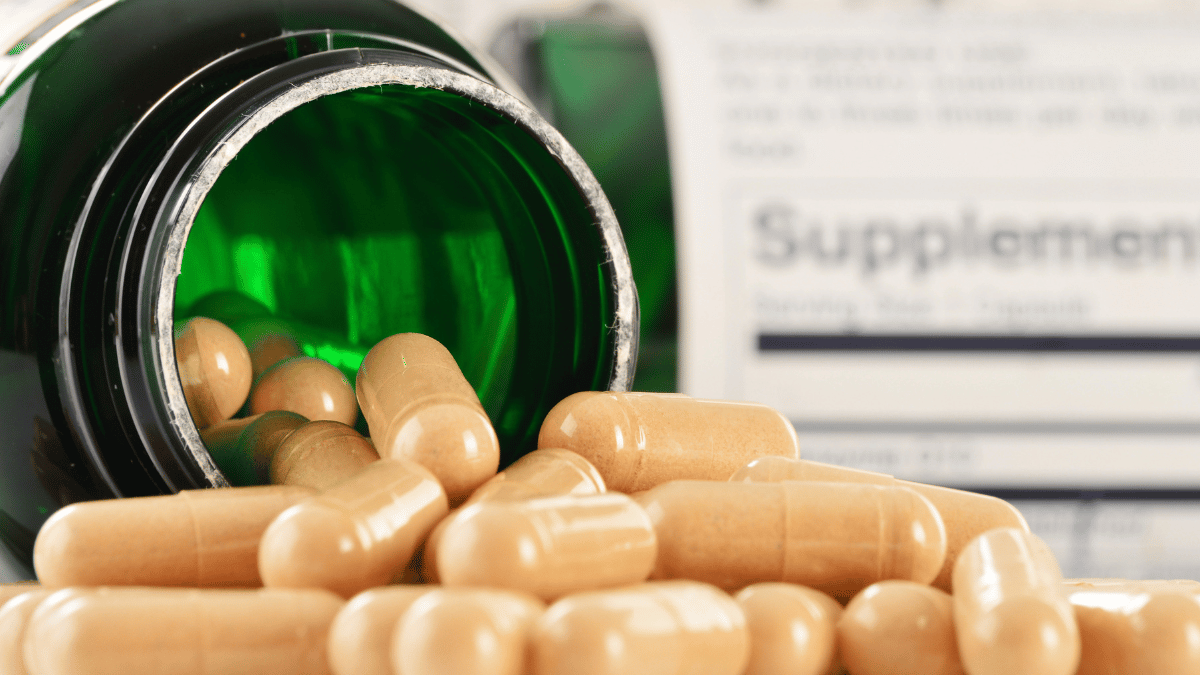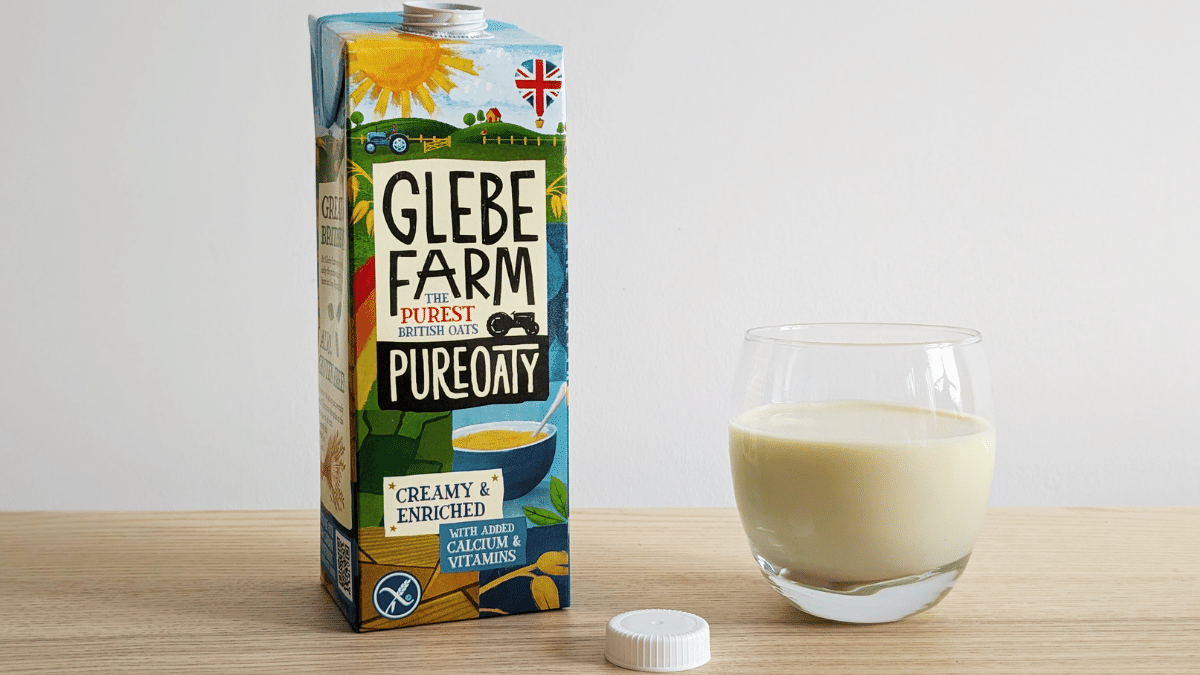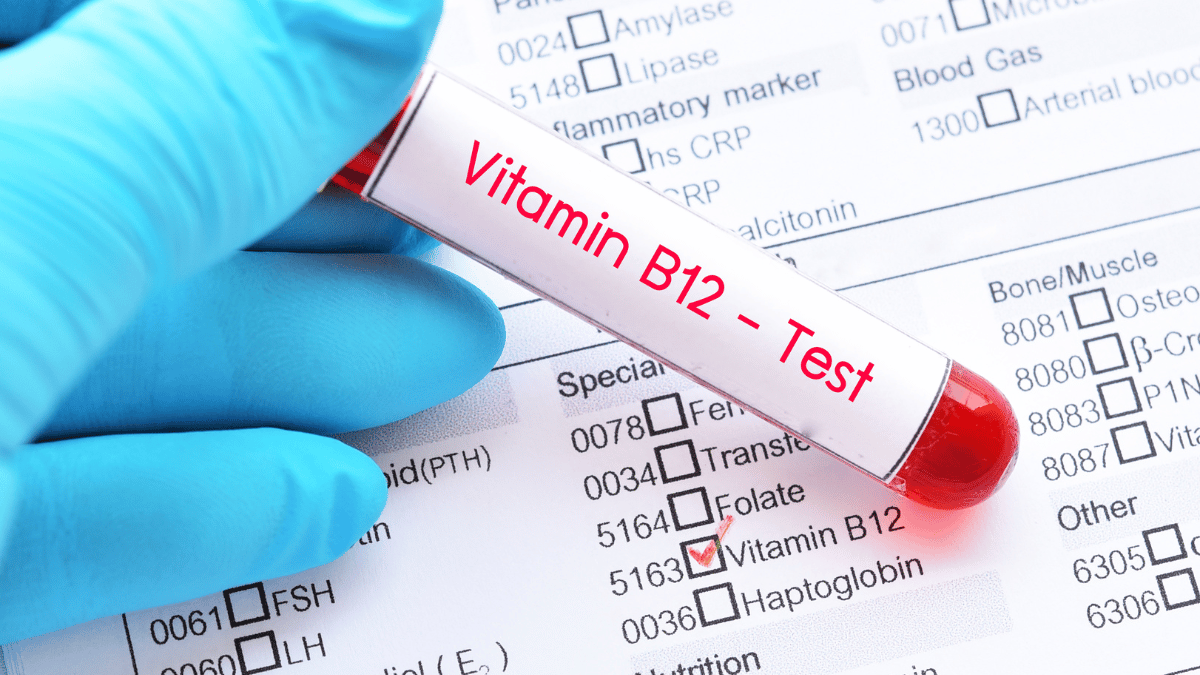When I started looking into veganism it wasn’t long before the subject of B12 popped up. What is it, why do we need it, where does it come from? This thing that I’d never even heard of previously was now so important.
Initially it felt like it was a bit of a stick that meat eating naysayers could hit vegans with. Something they could apparently get “naturally” from animals that vegans have to supplement with. However that feeling changed as I learnt more about this elusive vitamin. Especially the fact that B12 isn’t produced by animals at all, it’s actually produced by bacteria.
In this guide I’ll address the concerns of B12 deficiency in vegans, and offer practical recommendations on how you can meet B12 requirements while following a plant-based diet.
What’s the big deal with B12?
Whilst the numerous benefits of a vegan diet cannot be overstated, it’s crucial to ensure that, as is the case with all dietary choices, all essential nutrients are being adequately obtained, and this is especially true of vitamin B12.
Vitamin B12 plays a vital role in maintaining overall health. However, the primary sources of B12 are animal-derived foods, which obviously raises concerns about the potential for deficiency among vegans and those adhering to plant-based diets.
What is vitamin B12 and why is it so important?
Vitamin B12, also known as cobalamin, is a water-soluble vitamin that is crucial to maintaining the body’s overall health and proper function. It is unique among vitamins because it contains a trace element, cobalt.
Although it’s only required in small amounts, vitamin B12 is indispensable for several vital reasons. For vegans and those considering a transition to a plant-based diet, understanding the significance of this essential nutrient is key to avoiding definciences.
B12 serves several critical functions in the body, including energy production, nervous system function, DNA synthesis, and red blood cell formation. Let’s look at these functions in more detail:
Energy production:
Vitamin B12 contributes to energy production by aiding in the metabolism of fats and proteins. Additionally, B12 is essential for the proper functioning of the citric acid cycle, a series of chemical reactions that generate energy through the oxidation of glucose and fatty acids.
Nervous system function:
Vitamin B12 is vital for the proper functioning of the nervous system, as it helps maintain the myelin sheath that surrounds and protects nerve fibres. A lack of B12 can lead to demyelination, which impairs the nervous system’s ability to send and receive signals, potentially resulting in neurological symptoms.
DNA synthesis:
Vitamin B12 plays a role in DNA synthesis and regulation, the genetic material that carries the instructions for every cell in the body. When B12 levels are insufficient, abnormal DNA synthesis can occur, leading to ineffective cell division and an inability to produce new cells properly.
Red blood cell formation:
Vitamin B12 is also essential for the production of healthy red blood cells, which are responsible for transporting oxygen throughout the body. B12, along with folic acid, is required for the synthesis of heme, an iron-containing component of haemoglobin, the oxygen-carrying molecule in red blood cells.
A deficiency in B12 can lead to the production of abnormally large red blood cells, a condition known as megaloblastic anaemia, which impairs the ability of red blood cells to deliver oxygen efficiently.
What are the symptoms of a B12 deficiency?
Vitamin B12 deficiency can have serious consequences for your health, and it is essential to recognise the symptoms and address the deficiency promptly.
The symptoms of B12 deficiency can be diverse and may include fatigue, muscle weakness, lack of energy, mouth ulcers, dizziness, difficulty walking or maintaining balance, pins and needles in hands and feet, memory loss, and depression.
If left untreated, a deficiency can lead to irreversible nerve damage, cognitive decline, and an increased risk of heart disease due to elevated homocysteine levels.
Why Vitamin B12 can be challenging to obtain for vegans

Vitamin B12 is difficult to obtain from plant-based sources. The main reason for this is that B12 is primarily found in animal-derived foods, such as meat, dairy, and eggs. This occurrence in animal-based foods stems from the fact that B12 is produced by certain bacteria, which are often present in the gastrointestinal tracts of animals. As a result, the vitamin becomes incorporated into animal tissues and products.
Common misconceptions about B12 and plant-based diets
There are several misconceptions about B12 in plant-based foods that are worth discussing. One is that certain plant-based foods, such as spirulina, fermented foods, and unwashed organic produce, can provide sufficient amounts of B12. While it is true that some plant-based foods may contain traces of B12, the amounts are often inconsistent and unreliable.
Another misconception is that vegans can obtain enough B12 through a well-planned, diverse diet without the need for supplementation or fortified foods. While it is essential to consume a balanced and varied plant-based diet, it is unlikely to provide the necessary amounts of B12 without the inclusion of fortified foods or supplements.
Vegans and those following plant-based diets are advised to consume B12 fortified foods, such as plant-based milk, fortified cereals, and nutritional yeast, or to take a B12 supplement to ensure they meet their daily requirements.
Reliable sources of vitamin B12 for vegans

Reliable sources of vitamin B12 for vegans include fortified foods and supplements.
Fortified Foods & Plant-Based Milk
Plant-based milk, such as soy, almond, and oat milk (Glebe Farm Pureoaty is my favourite), are often fortified with B12. Check the product label to confirm the presence of B12.
Nutritional yeast, a popular vegan ingredient with a cheesy flavour (not to mention a must have for scrambled tofu!), is another reliable source when fortified with B12.
Breakfast cereals can also provide B12 when fortified. Again check the ingredients label to confirm.
Plant-Based Meat substitutes, including plant-based burgers, sausages and bacon, are often fortified with B12.
Vitamin B12 Supplements
B12 supplements are a direct and easy way to ensure adequate intake. There are two common types of B12 supplements: cyanocobalamin and methylcobalamin.
Cyanocobalamin is a synthetic form while methylcobalamin is a naturally occurring form. Research has shown that cyanocobalamin might be better absorbed by the body. However some studies have shown the differences between the two appear to be minimal.
Methylcobalamin appears to be the more common supplemental form in the UK so I wouldn’t spend too much time worrying about which version to get as the differences appear to be minimal.
What is the recommended B12 intake for vegans?
Daily B12 intake recommendations for vegans are similar to those for the general population, as the body’s requirements for this essential nutrient do not differ based on dietary choices. According to the NHS, the recommended daily intake of vitamin B12 for adults is 1.5 micrograms (mcg) per day.
However, a number of prominent plant-based diet advocates such as physician Dr Michael Greger, suggest a higher intake for vegans to ensure adequate levels are maintained.
Dr Greger suggests supplementing either 50 micrograms (mcg) per day or 2,000 micrograms (mcg) once per week. Or a serving of B12-fortified foods three times a day, each containing at least 190 percent of the RDI listed on the product label.
Personally I fall somewhere in between and I’m fairly confident I’m getting an adequate amount of B12 by regularly consuming fortified oat milk and occasional plant-based meat substitutes. As well as a daily multivitamin which contains 2.5 mcg of B12 along with another Vitamin B12 supplement of 1,000 mcg which I take once a week.
Another option would be to combine and take a vegan specific daily multivitamin which includes a larger amount of B12, like this one from Vegums which contains 20 mcg.
Monitoring and testing your B12 levels

Obviously if you are experiencing any symptoms that might suggest a B12 deficiency you should make an appointment with your GP right away.
If you are not experiencing any symptoms but just want to assess your current B12 levels then a home B12 test kit is a good option. As generally, your doctor would only suggest a blood test if you were presenting with symptoms of a potential B12 deficiency.
You can order a basic B12 blood test kit from Superdrug from £38.99. There’s also quite a few home test kits listed on Amazon UK. Another option and one I’ve used personally is York Test Essential Health Check. Ideal if you want to get a bigger picture of your overall health and vitamin levels as it tests for numerous different markers, including B12 and vitamin D as well as cholesterol levels and liver function. Speaking from experience the speed of the results and customer service from York Test is excellent.
Ensure you are getting enough B12 and move on
Clearly the importance of vitamin B12 for vegans can’t be emphasized enough. So, let us all be proactive in prioritising vitamin B12 in our diets, push aside any silly concerns that taking supplements means your diet or lifestyle isn’t perfect, and get on with enjoying the numerous benefits veganism has for our overall well-being!
I’m the founder and editor-in-chief at GetVedgy. As a former meat eater who only recently made a commitment to veganism, I’ve spent a lot of time over the last couple of years researching the subject. It felt like a good idea to share what I’ve learnt and help to answer the questions I’ve had that no doubt many others’ will also have.

